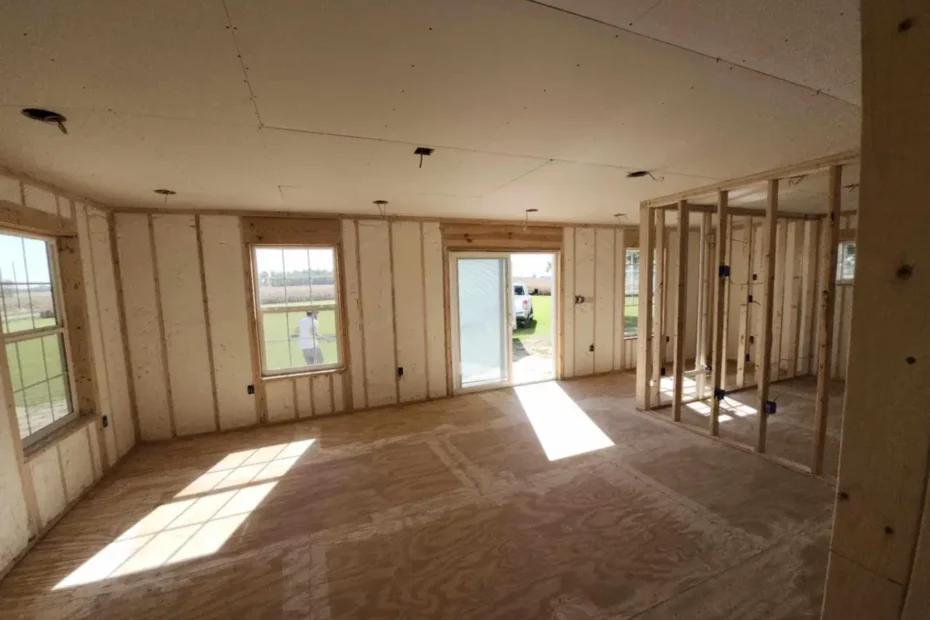Closed-cell spray foam is increasingly recognized for its numerous advantages in construction and insulation. This innovative material not only improves energy efficiency but also strengthens the overall structural integrity of buildings. In this article, we will explore how closed-cell spray foam plays a crucial role in fortifying structures, enhancing their longevity and resilience against environmental challenges.
Understanding Closed-Cell Spray Foam
To appreciate the benefits of closed-cell spray foam, it’s essential to understand what it is and how it works. This type of foam insulation consists of tiny cells that are closed off from one another, leading to superior insulation properties and structural support. The unique structure allows it to be denser and more rigid compared to open-cell foam, making it an ideal choice for projects demanding high-strength materials.
Closed-cell spray foam’s composition significantly enhances its performance, particularly in challenging environments. The encapsulation of individual cells traps gas within them, which contributes to its excellent thermal resistance. As a result, it can effectively minimize heat transfer, making it a formidable barrier against temperature fluctuations. This is crucial in both residential and commercial settings, where maintaining a stable internal environment can directly influence comfort and energy management.
Strengthening Walls and Roofs
Closed-cell spray foam creates a robust barrier that reinforces walls and roofs. This structural enhancement prevents air leaks and minimizes the risk of moisture-related damage, ensuring the building’s integrity over time. Beyond mere insulation, it contributes to the overall stability of structures. For example, areas subjected to high winds can benefit significantly from the additional strength provided by this foam, which helps mitigate the risks associated with severe weather conditions.
Moreover, the application of closed-cell spray foam can lead to longer-lasting roofs and walls. By effectively sealing joints and gaps, it not only enhances structural integrity but also decreases the likelihood of future repairs. Buildings fortified with closed-cell spray foam are better equipped to handle the stresses of time, which can lead to substantial long-term savings for homeowners and commercial property managers alike. Ultimately, investing in this form of insulation is an investment in peace of mind and structural durability.
Energy Efficiency and Cost Savings
One of the primary benefits of closed-cell spray foam is its ability to improve energy efficiency. By reducing energy loss, properties can enjoy significant cost savings on utility bills while also maintaining a more consistent interior climate. This can be especially advantageous in regions that experience extreme temperatures, where conventional insulation might struggle to provide adequate performance.
In addition to the immediate savings seen through minimized heating and cooling costs, there are broader financial implications. Buildings enhanced with closed-cell spray foam often achieve better energy efficiency ratings, which can increase their market value. Property owners might also qualify for rebates or tax incentives aimed at promoting energy-efficient building practices, making the initial investment in closed-cell spray foam even more appealing.
Moisture and Mold Resistance
Closed-cell spray foam acts as a formidable moisture barrier, protecting structures from water infiltration. This resistance to moisture not only prevents mold growth but also extends the life of building materials. By effectively blocking out water, it reduces the risk of mold and mildew, which can pose health risks and lead to costly remediation efforts.
Furthermore, the properties of closed-cell spray foam make it beneficial for managing condensation. In environments where humidity levels fluctuate, the material’s ability to maintain impermeability helps to control moisture levels within the building. By creating a dry environment, closed-cell spray foam contributes to healthier indoor air quality, making it an excellent choice for homes, schools, and commercial spaces alike.
Applications in Various Construction Projects
From residential to commercial projects, closed-cell spray foam is being utilized in diverse applications. Its versatility makes it suitable for a variety of settings, reinforcing structures, and providing excellent insulation. Whether it’s a new home build or a retrofitting of an older structure, the ability to customize the application process ensures that each project can maximize the benefits of this material.
Moreover, industrial and agricultural sectors are increasingly adopting closed-cell spray foam for its capacity to enhance structural integrity under extreme conditions. In factories, warehouses, and agricultural facilities, it serves as an effective insulator while also protecting against the elements. With such a broad range of uses, closed-cell spray foam is proving to be an essential material in modern construction, offering adaptations that cater to the unique challenges faced by different industries.

